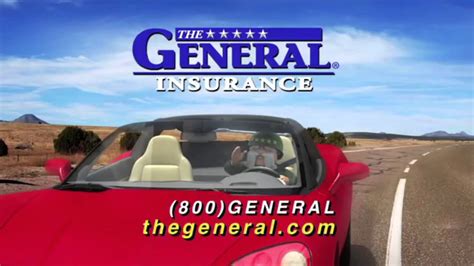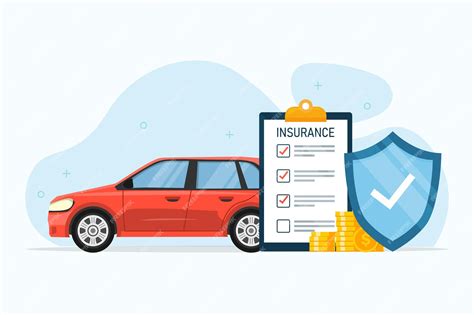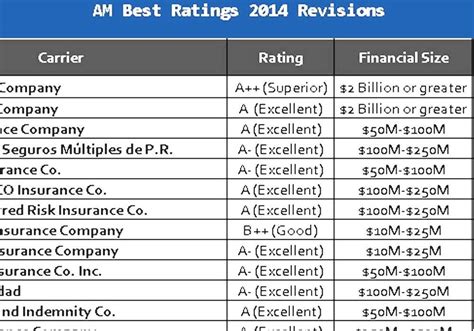Car Insurance For Business

For any business that utilizes vehicles, having a comprehensive car insurance policy is crucial to protect against potential financial losses and legal liabilities. Whether you're a small business owner with a single company car or a large corporation with a fleet of vehicles, understanding the nuances of commercial auto insurance is essential. This article aims to delve into the world of car insurance for businesses, offering an in-depth analysis of the key considerations, policy options, and strategies to secure the best coverage at the right price.
Understanding Commercial Auto Insurance

Commercial auto insurance, also known as business auto insurance, is specifically designed to cover vehicles used for business purposes. It provides protection against various risks, including accidents, theft, and damage to the vehicles themselves, as well as liability for any injuries or property damage caused by the business vehicles. Unlike personal auto insurance, commercial policies are tailored to the unique needs and risks associated with business operations.
Key Coverage Components
A typical commercial auto insurance policy includes several key components that offer protection against a range of potential incidents:
- Liability Coverage: This is the cornerstone of any auto insurance policy. It covers the policyholder for bodily injury and property damage claims made against them by others as a result of an accident involving the insured vehicle.
- Physical Damage Coverage: This includes comprehensive and collision coverage, protecting the insured vehicle from theft, vandalism, weather-related incidents, and accidents. It covers the cost of repairs or, if the vehicle is a total loss, the actual cash value of the vehicle.
- Medical Payments Coverage: Also known as Personal Injury Protection (PIP), this coverage pays for the medical expenses of the driver and passengers of the insured vehicle, regardless of who is at fault in an accident.
- Uninsured/Underinsured Motorist Coverage: This provides protection if the at-fault driver in an accident does not have enough insurance to cover the damages caused. It helps cover medical bills, lost wages, and other related expenses.
- Rental Reimbursement: If the insured vehicle is being repaired due to a covered incident, this coverage provides a rental car allowance to ensure the business can continue its operations without interruption.
Types of Commercial Auto Policies

The type of commercial auto insurance policy a business needs depends on several factors, including the nature of the business, the number of vehicles, and the usage of those vehicles. Here are some common types of policies:
Garage Policies
A garage policy, or garage liability insurance, is designed for businesses involved in the automotive industry, such as garages, repair shops, and car dealerships. These policies provide coverage for vehicles owned by the business as well as customer vehicles that are being serviced. Garage policies often include additional coverages such as garagekeepers coverage, which protects against damage or theft of customer vehicles while in the care, custody, or control of the business.
Hired and Non-Owned Auto Liability Coverage
This type of coverage is essential for businesses that hire vehicles or use personal vehicles for business purposes. It protects the business from liability claims arising from accidents involving hired or non-owned vehicles. For example, if a company hires a moving truck to transport goods or if employees use their personal vehicles for work-related tasks, this coverage ensures the business is protected.
Fleet Policies
Fleet policies are designed for businesses that own or lease multiple vehicles. These policies offer a cost-effective way to insure a large number of vehicles under a single policy, providing comprehensive coverage for the entire fleet. Fleet policies can be customized to meet the specific needs of the business, including coverage for different types of vehicles and various business uses.
Factors Affecting Commercial Auto Insurance Rates
Like personal auto insurance, commercial auto insurance rates are influenced by a variety of factors. Understanding these factors can help businesses make informed decisions when choosing a policy and potentially save money on their premiums.
Business Type and Size
The nature of the business and its size are key considerations for insurance providers. High-risk businesses, such as those involved in construction or transportation, may face higher premiums due to the increased likelihood of accidents and claims. Similarly, larger businesses with more vehicles are generally considered higher risk and may pay more for insurance.
Driver Records
The driving records of employees who operate company vehicles play a significant role in determining insurance rates. A history of accidents, violations, or DUI convictions can lead to higher premiums. Conversely, a clean driving record can help keep rates down.
Coverage and Deductibles
The level of coverage chosen and the associated deductibles can significantly impact insurance premiums. Higher coverage limits and lower deductibles generally result in higher premiums, while lower coverage limits and higher deductibles can lead to lower premiums. Businesses should carefully consider their risk tolerance and financial capacity when choosing coverage levels and deductibles.
Claims History
Insurance providers closely examine a business’s claims history when determining rates. A history of frequent claims can lead to higher premiums or even difficulty in securing insurance. On the other hand, a clean claims history can help lower rates over time.
Tips for Obtaining the Best Commercial Auto Insurance
Securing the right commercial auto insurance policy at a competitive rate requires careful consideration and strategic planning. Here are some tips to help businesses navigate the process:
Conduct a Risk Assessment
Start by conducting a thorough risk assessment of your business. Identify potential hazards and vulnerabilities that could lead to accidents or claims. This assessment will help you understand the type and level of coverage you need and guide your insurance choices.
Choose the Right Coverage
Based on your risk assessment, select the coverage that best suits your business needs. Ensure you have adequate liability coverage to protect against potential lawsuits. Additionally, consider optional coverages like rental reimbursement, which can provide added protection and peace of mind.
Explore Deductible Options
Deductibles can significantly impact your insurance premiums. While higher deductibles may lower your monthly premiums, they also mean you’ll have to pay more out of pocket if you need to make a claim. Assess your business’s financial capacity and choose a deductible that aligns with your risk tolerance and budget.
Bundle Policies
Bundling your commercial auto insurance with other business insurance policies, such as property insurance or workers’ compensation, can often result in significant discounts. Insurance providers may offer package deals or multi-policy discounts that can save your business money.
Maintain a Good Claims History
A clean claims history is not only beneficial for keeping insurance rates low but also demonstrates to insurance providers that your business is responsible and risk-averse. Encourage your employees to drive safely and responsibly to help maintain a positive claims history.
Consider Telematics-Based Insurance
Telematics-based insurance, also known as usage-based insurance, uses technology to monitor and analyze driving behavior. By installing a telematics device in your vehicles, insurance providers can assess factors like mileage, driving speed, and braking habits. Businesses with safe driving records and low mileage can often benefit from reduced premiums through telematics-based insurance programs.
The Future of Commercial Auto Insurance

The commercial auto insurance landscape is evolving rapidly, driven by technological advancements and changing business needs. As businesses increasingly adopt new technologies and shift their operations, the risks they face also change. Insurance providers are adapting their offerings to keep pace with these changes, introducing innovative solutions to meet the unique needs of modern businesses.
Telematics and Data Analytics
The use of telematics and data analytics is transforming the way commercial auto insurance is priced and delivered. By collecting and analyzing real-time data on driving behavior and vehicle usage, insurance providers can offer more accurate and tailored coverage. This data-driven approach allows businesses to benefit from discounts for safe driving habits and provides insurance providers with valuable insights to improve risk assessment and claims management.
Cybersecurity and Autonomous Vehicles
As businesses increasingly rely on technology, cybersecurity risks are becoming a growing concern. Insurance providers are developing coverage options to protect businesses from potential cyber threats, such as data breaches and ransomware attacks. Additionally, with the advent of autonomous vehicles, insurance providers are exploring new coverage options to address the unique risks associated with self-driving cars.
Sustainable and Green Initiatives
Many businesses are embracing sustainability and green initiatives to reduce their environmental impact. Insurance providers are recognizing this trend and offering incentives and discounts for businesses that adopt eco-friendly practices, such as using electric vehicles or implementing energy-efficient measures. These initiatives not only benefit the environment but can also lead to cost savings for businesses.
Risk Management Services
Insurance providers are expanding their role beyond traditional coverage to offer risk management services that help businesses identify and mitigate potential risks. These services can include safety training programs, loss control consultations, and claims management support. By partnering with insurance providers that offer these services, businesses can enhance their risk management capabilities and potentially reduce insurance costs over time.
Frequently Asked Questions
How does commercial auto insurance differ from personal auto insurance?
+Commercial auto insurance is designed specifically for vehicles used for business purposes, while personal auto insurance is intended for private, non-business use. Commercial policies typically offer higher liability limits and additional coverages to protect businesses from unique risks, such as employee injuries or property damage claims.
What factors can affect my commercial auto insurance rates?
+Several factors can influence commercial auto insurance rates, including the nature and size of your business, driver records, coverage and deductibles chosen, and your business’s claims history. High-risk businesses or those with a history of frequent claims may face higher premiums.
How can I lower my commercial auto insurance premiums?
+To lower your premiums, consider conducting a thorough risk assessment to identify areas where you can improve safety measures. Choose appropriate coverage limits and deductibles based on your risk tolerance and financial capacity. Maintain a clean claims history, and explore options like bundling policies or telematics-based insurance programs, which can offer discounts for safe driving habits.
What should I look for when choosing a commercial auto insurance provider?
+When selecting a commercial auto insurance provider, consider factors such as their financial stability, the range of coverages and policy options they offer, their claims handling process and reputation, and any additional services or support they provide, such as risk management resources or loss control consultations.
How often should I review my commercial auto insurance policy?
+It’s recommended to review your commercial auto insurance policy annually or whenever your business experiences significant changes, such as an increase in the number of vehicles, a change in business operations, or a relocation to a new area. Regular policy reviews ensure your coverage remains adequate and up-to-date with your business needs.



